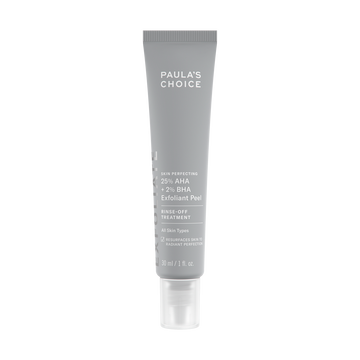Beauty

Let’s Talk About: Glycation
Because cake may be making you look old.
Put those easter chocolates down, because inflation! Plus your relationship with sugar may not be as sweet as you think. Did you know that there’s a direct link between the amount of sugar in your system and how old you look?
There’s no denying that we love a little after-dinner dessert, but when it comes to our bodies, we all know sugar is the villain. In fact, Australians are consuming an average of 14 teaspoons of sugar a day! So how does this affect our skin ageing? We spoke to Dr Shyamalar Gunatheesan, Founding Dermatologist ODE Dermatology, Founder of SkinDNA Stefan Mazy and Paula’s Choice Skincare Research & Education Manager Desiree Stordahl to find out more on Glycation.
What is Glycation?
Like many 30-somethings you may have started to see a slow painful decline in your youth marked by weight gain, lethargy and wrinkles. We all know that sugar affects our body but the effects on our skin is exactly what we called the experts on. Dr Gunatheesan explains Glycation happens when “Sugars such as glucose and fructose cause non-enzymatic bonds with proteins, lipids, nucleic acids.” The end product from the cross-link of these bonds are referred to as AGEs (Advanced Glycation Endproducts)
AGEs have been shown to cause hyperglycemia, high blood sugar, diabetic complications, Alzheimer’s and skin ageing.
The problem with Glycation
Stefan Mazy tell us that Glycation can reduce the elasticity of your skin.
Mazy’s Pinch Test: Try pinching the back of your hand, the skin will snap back and smooth out. As we age, it’s inevitable our skin becomes less elastic.
Similarly to when glycation affects the elasticity of your skin, your “Skin won’t snap back as effectively causing glycated crevices/wrinkles that appear on the face.”
Desiree Stordahl describes the relationship between sugar and AGEs as a detrimental domino effect “Progressively and continually destroy(ing) many aspects of skin, especially elastin and collagen, the two substances that give skin its firmness and resilience.”
So, how exactly do we get it?
In short, a diet high in sugar.
Think you’re suffering from Glycation? It’s hard to tell exactly if you do as it’s a long process so you won’t know immediately.
Stefan Mazy tells us that “It’s important to know that with sugar it’s not necessarily about chocolate or sweet things, it can also be simple sugars, like carbohydrates. The higher the simple sugar content, the higher the amount of energy the body uses to break down that content.”
Signs of Glycation
- Fine lines and wrinkles
- Fine crepey skin around the eyes
- Abnormal melanin production = brown spots
Are you genetically prone to Glycation?
Glycation is all about how your body processes sugar, Mazy explains “Certain genetic responses can be responsible for weight gain, or the “fat gene”, this is something that your body is responsible for in helping to break down sugar.” However, technically speaking the process of glycation is linked to genetics as “Your body produces certain proteins based on genetic functions to help speed up the breakdown of sugar.”
Dr Gunatheesan adds “We have found single nuclear types polymorphism, which means there are genetic variations in the age receptor that can determine how we accumulate AGEs – so yes, there is certainly that inheritable component to these AGEs.”
Just like how we all differ in how we break down sugars and metabolise food is the same way our body differs in Glycation activity.
How can we reduce the effects of Glycation?
While a diet high in sugar is the main culprit, Desiree Stordahl explains that not only does sugar create skin-damaging AGEs but there “Is something called the Maillard Reaction (MR). The Maillard Reaction is what happens when you cook any food and brown or blacken it with high heat.”
DON’T
- Chargrill or blacken your food
- Use high heat and deep frying food
- Consume high sugar diet (refined sugars, carbohydrates)
- Smoke
DO
- Steam or boil your food
- A diet rich in low GI, fruits, veggies
- Exercise improves the absorption of Glucose into muscles
SKINCARE
- Sunscreen
- Retinol
- Vitamin B (Niacinamide)
- Vitamin C
- Lactic Acid
- Hyaluronic Acid
SHOP THE EDIT
Read More Beauty
Read More From En Route

How to manifest with Gabby Bernstein
Mindfulness
04/25

Just In! Be In The Know Fridays
Culture
04/25

What’s Good: New Beauty To Try Right Now
Beauty , Shopping Guide , What's News
04/25
come En-Route with us
Sign-up for our newsletter.
By clicking "submit", you agree to receive emails from En-Route and accept our privacy and cookie policy.





















